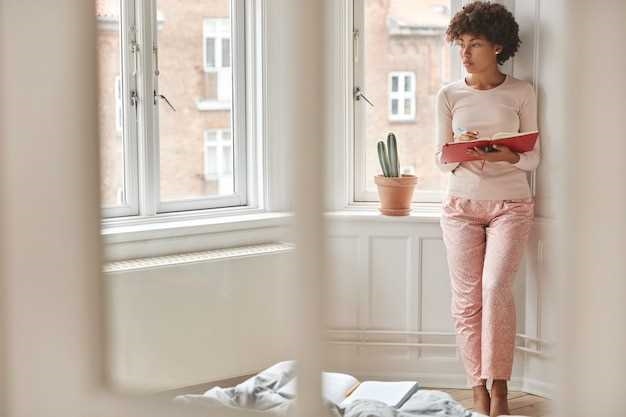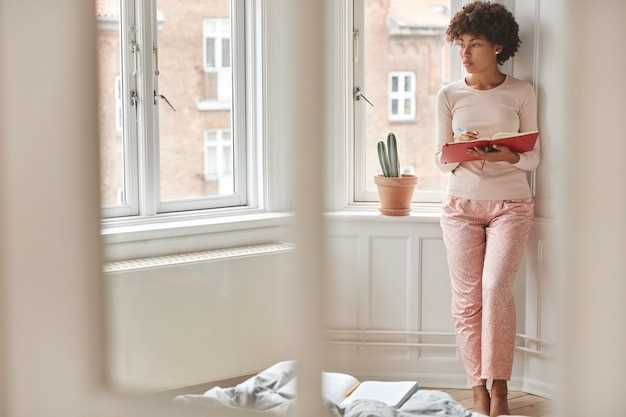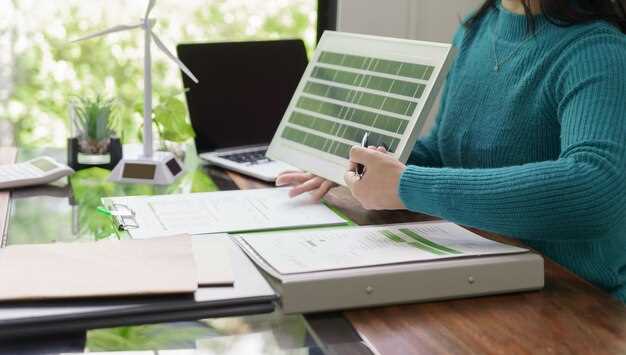

Are you tired of watching your hard-earned cash disappear into thin air? It’s time to take control of your utility expenses and start saving money without compromising on comfort. One of the most effective ways to achieve this is by investing in energy-efficient windows. These innovative windows are designed to minimize heat transfer, reduce energy consumption, and ultimately lower your utility bills.
When it comes to energy-efficient windows, it’s not just about saving money – it’s about making a smart investment for the future. By upgrading your windows, you can significantly improve the insulation of your home, creating a more comfortable living environment all year round. Whether it’s scorching hot or freezing cold outside, energy-efficient windows act as a barrier, keeping the unwanted heat or cold at bay and maintaining a pleasant indoor temperature.
But what sets energy-efficient windows apart from traditional windows? The secret lies in their advanced technology and superior construction. These windows are equipped with multiple layers of glass, often filled with insulating gases, and coated with low-emissivity (low-E) coatings. This combination effectively blocks the transfer of heat, preventing it from escaping during winter or entering during summer. Additionally, energy-efficient windows are designed with tight seals and durable frames to eliminate drafts and reduce air leakage, further enhancing their energy-saving capabilities.
Not only do energy-efficient windows help you save on heating and cooling costs, but they also contribute to a greener and more sustainable future. By reducing your energy consumption, you are reducing your carbon footprint and minimizing the strain on natural resources. It’s a win-win situation – you save money while doing your part to protect the environment.
So, if you’re ready to take control of your utility expenses and enjoy a more comfortable home, it’s time to consider investing in energy-efficient windows. With their advanced technology, superior insulation, and long-term cost savings, these windows are a smart choice for any homeowner looking to maximize their savings and reduce their environmental impact. Don’t let your money fly out the window – make the switch to energy-efficient windows today!
Understanding the Benefits of Energy-Efficient Windows
Exploring the Advantages of Energy-Saving Windows
When it comes to enhancing the energy efficiency of your home, one area that deserves attention is the windows. Energy-efficient windows offer a range of benefits that go beyond just saving money on utility bills. These windows are designed to minimize heat transfer, reduce energy consumption, and create a more comfortable living environment.
Enhanced Insulation: Energy-efficient windows are equipped with advanced insulation features that help to regulate the temperature inside your home. By preventing heat loss during the winter and heat gain during the summer, these windows ensure a more consistent and comfortable indoor climate throughout the year.
Reduced Energy Consumption: By minimizing heat transfer, energy-efficient windows reduce the need for excessive heating or cooling. This leads to a significant reduction in energy consumption, resulting in lower utility bills and a smaller carbon footprint.
Improved Comfort: Energy-efficient windows not only help to maintain a consistent indoor temperature but also reduce drafts and cold spots. This creates a more comfortable living environment by eliminating uncomfortable temperature fluctuations and ensuring a cozy atmosphere all year round.
Noise Reduction: Energy-saving windows are designed to provide excellent sound insulation. They can significantly reduce the amount of noise entering your home from outside, creating a peaceful and quiet living space.
Protection from UV Rays: Energy-efficient windows are often equipped with special coatings that can block harmful ultraviolet (UV) rays. These coatings help to protect your furniture, flooring, and other belongings from fading or discoloration caused by prolonged exposure to sunlight.
Increased Property Value: Installing energy-efficient windows can enhance the value of your property. Potential buyers are increasingly looking for homes with energy-saving features, and having energy-efficient windows can make your home more attractive to potential buyers and increase its resale value.
Overall, energy-efficient windows offer a wide range of benefits, including enhanced insulation, reduced energy consumption, improved comfort, noise reduction, protection from UV rays, and increased property value. Investing in these windows not only helps to save money on utility bills but also contributes to a more sustainable and eco-friendly lifestyle.
How Energy-Efficient Windows Can Reduce Your Energy Consumption
Discover the significant impact that energy-efficient windows can have on reducing your overall energy consumption. By installing these innovative windows, you can effectively decrease the amount of energy needed to heat or cool your home, resulting in lower energy usage and a more sustainable lifestyle.
One of the key benefits of energy-efficient windows is their ability to provide excellent insulation. These windows are designed with advanced materials and technologies that minimize heat transfer, preventing the loss of warm or cool air from inside your home. As a result, your heating and cooling systems will not have to work as hard to maintain a comfortable indoor temperature, leading to reduced energy consumption and lower utility bills.
Furthermore, energy-efficient windows are equipped with special coatings that can effectively block harmful ultraviolet (UV) rays from entering your home. This not only protects your furniture, flooring, and other belongings from fading or discoloration caused by sun exposure but also reduces the need for excessive air conditioning during hot summer months. By keeping your home cooler naturally, you can rely less on energy-intensive cooling systems, resulting in significant energy savings.
In addition to their insulation and UV-blocking properties, energy-efficient windows also contribute to noise reduction. These windows are designed to minimize sound transmission, creating a quieter and more peaceful indoor environment. By reducing the need for noisy fans or air conditioning units, you can enjoy a more serene living space while simultaneously reducing your energy consumption.
Investing in energy-efficient windows not only benefits your wallet but also the environment. By reducing your energy consumption, you are actively contributing to the reduction of greenhouse gas emissions and promoting a more sustainable future. With the wide range of energy-efficient window options available today, it is easier than ever to make a positive impact on both your energy bills and the planet.
- Decrease energy usage and lower utility bills
- Excellent insulation to minimize heat transfer
- Special coatings to block harmful UV rays
- Noise reduction for a quieter indoor environment
- Contribution to a more sustainable future
Choosing the Right Energy-Efficient Windows for Your Home

When it comes to enhancing the energy efficiency of your home, one of the most important factors to consider is the type of windows you choose. Energy-efficient windows can significantly reduce your energy consumption and help you create a more sustainable living environment. In this section, we will explore the key factors to consider when selecting energy-efficient windows for your home.
1. Window Frame Materials
The choice of window frame material plays a crucial role in determining the energy efficiency of your windows. Different materials have varying levels of insulation properties and durability. Common options include vinyl, wood, aluminum, and fiberglass. Each material has its own advantages and disadvantages, so it’s important to consider factors such as cost, maintenance requirements, and aesthetic appeal when making your decision.
2. Glass Options
The type of glass used in your windows also has a significant impact on energy efficiency. Double-pane or triple-pane windows with low-emissivity (low-E) coatings are highly recommended for their ability to reduce heat transfer and improve insulation. Additionally, gas fills such as argon or krypton between the glass panes can further enhance the thermal performance of the windows.
Furthermore, consider the solar heat gain coefficient (SHGC) and the U-factor of the glass. The SHGC measures how much heat from the sun is transmitted through the glass, while the U-factor indicates the rate of heat loss or gain through the window. Opting for low SHGC and U-factor values can help you maximize energy efficiency.
3. Window Design and Installation
The design and installation of your windows also play a crucial role in their energy efficiency. Look for windows with airtight seals and proper weatherstripping to prevent air leakage. Additionally, consider the orientation of your windows and the amount of natural light they allow in. Strategic placement of windows can help you optimize natural lighting and reduce the need for artificial lighting during the day.
It’s also important to hire a professional installer who can ensure proper installation, as even the most energy-efficient windows can underperform if not installed correctly.
- Consider the window frame materials, such as vinyl, wood, aluminum, or fiberglass.
- Explore glass options like double-pane or triple-pane windows with low-E coatings.
- Pay attention to the solar heat gain coefficient (SHGC) and U-factor of the glass.
- Look for windows with airtight seals and proper weatherstripping.
- Optimize natural lighting and consider the orientation of your windows.
- Hire a professional installer for proper installation.
By carefully considering these factors and making informed choices, you can select the right energy-efficient windows that will not only help you save on utility bills but also contribute to a greener and more sustainable home.
The Cost-Saving Potential of Energy-Efficient Windows
Discover the remarkable financial benefits that can be achieved through the installation of energy-efficient windows. By investing in these innovative window solutions, homeowners can significantly reduce their monthly expenses and enjoy long-term savings. This section explores the cost-saving potential of energy-efficient windows and highlights the various ways in which they can contribute to a more economical and sustainable lifestyle.
Maximizing Energy Efficiency
Energy-efficient windows are designed to minimize heat transfer, ensuring that the desired indoor temperature is maintained without excessive reliance on heating or cooling systems. By effectively insulating the home, these windows prevent drafts and air leaks, reducing the need for constant temperature adjustments. This not only enhances comfort but also leads to substantial savings on energy bills.
Furthermore, energy-efficient windows are equipped with advanced glazing technologies that can significantly reduce the amount of ultraviolet (UV) and infrared (IR) radiation entering the home. This feature not only protects furniture, flooring, and other interior elements from sun damage but also helps regulate indoor temperatures. As a result, homeowners can rely less on air conditioning during hot summer months, leading to lower energy consumption and reduced utility costs.
Long-Term Investment
While the initial cost of energy-efficient windows may be higher compared to traditional windows, they offer a long-term return on investment. The energy savings achieved over time can offset the initial expense, making them a financially wise choice. Additionally, energy-efficient windows can increase the overall value of a property, making it more attractive to potential buyers in the future.
Moreover, many energy-efficient windows come with warranties that cover defects and performance issues, providing homeowners with peace of mind and additional cost savings. These warranties often extend for several years, ensuring that the windows continue to deliver energy efficiency and cost savings well into the future.
By embracing the cost-saving potential of energy-efficient windows, homeowners can not only reduce their monthly expenses but also contribute to a greener and more sustainable environment. The financial benefits, combined with the positive impact on energy consumption, make energy-efficient windows a smart choice for those seeking to save money while minimizing their carbon footprint.
Tips for Proper Installation and Maintenance of Energy-Saving Windows
When it comes to maximizing the benefits of energy-saving windows, proper installation and maintenance are crucial. This section provides valuable tips and guidelines to ensure that your energy-efficient windows perform optimally and last for years to come.
1. Hire a Professional Installer: To guarantee the correct installation of your energy-saving windows, it is advisable to hire a professional installer with experience in handling such projects. They have the necessary skills and knowledge to ensure a proper fit and seal, minimizing air leakage and maximizing energy efficiency.
2. Inspect and Prepare the Window Opening: Before installing the new windows, carefully inspect the window opening for any signs of damage or decay. Repair or replace any damaged components, such as window frames or sills, to ensure a solid foundation for the new windows. Additionally, clean the opening thoroughly and remove any debris or old caulking.
3. Properly Seal and Insulate: During the installation process, it is crucial to properly seal and insulate around the window frame to prevent air leakage. Use high-quality weatherstripping and caulking materials to create an airtight seal. This will help to reduce drafts and heat loss, improving the energy efficiency of your windows.
4. Regularly Clean and Maintain: To ensure the longevity and performance of your energy-saving windows, it is essential to establish a regular cleaning and maintenance routine. Clean the windows using a mild detergent and non-abrasive cloth, and inspect them for any signs of damage or wear. Replace any damaged weatherstripping or caulking promptly to maintain the window’s energy efficiency.
5. Consider Window Treatments: In addition to proper installation and maintenance, utilizing window treatments can further enhance the energy efficiency of your windows. Install blinds, shades, or curtains to provide an extra layer of insulation and control over sunlight and heat gain. These treatments can help to reduce the need for artificial cooling or heating, ultimately saving energy and lowering utility costs.
| Tip | Description |
|---|---|
| 1 | Hire a professional installer |
| 2 | Inspect and prepare the window opening |
| 3 | Properly seal and insulate |
| 4 | Regularly clean and maintain |
| 5 | Consider window treatments |
Other Ways to Reduce Expenses on Household Energy Consumption
Aside from investing in energy-efficient windows, there are various other strategies you can implement to minimize your utility bills. By adopting these practices, you can effectively reduce your energy consumption and save money in the long run.
| Strategy | Description |
|---|---|
| Insulation | Enhance the insulation of your home by sealing any air leaks and adding insulation to your walls, attic, and basement. This will help maintain a consistent temperature indoors, reducing the need for excessive heating or cooling. |
| Energy-Efficient Appliances | Upgrade your appliances to energy-efficient models. Look for appliances with the Energy Star label, as they consume less energy without compromising performance. |
| Smart Thermostat | Install a programmable or smart thermostat to regulate your home’s temperature efficiently. These devices allow you to set specific temperature schedules, ensuring that energy is not wasted when you are away or asleep. |
| LED Lighting | Replace traditional incandescent light bulbs with energy-efficient LED bulbs. LED lights consume significantly less energy and have a longer lifespan, resulting in reduced electricity costs. |
| Unplug Electronics | Unplug electronics and appliances when they are not in use. Many devices continue to draw power even when turned off, contributing to “phantom” energy usage. Using power strips with switches can make it easier to completely disconnect multiple devices at once. |
| Water Conservation | Implement water-saving measures such as installing low-flow showerheads and faucets, fixing leaks promptly, and using efficient irrigation systems for your garden. Conserving water not only reduces your water bill but also saves the energy required to heat and pump water. |
By incorporating these energy-saving practices into your daily routine, you can significantly decrease your utility expenses while also contributing to a more sustainable future.